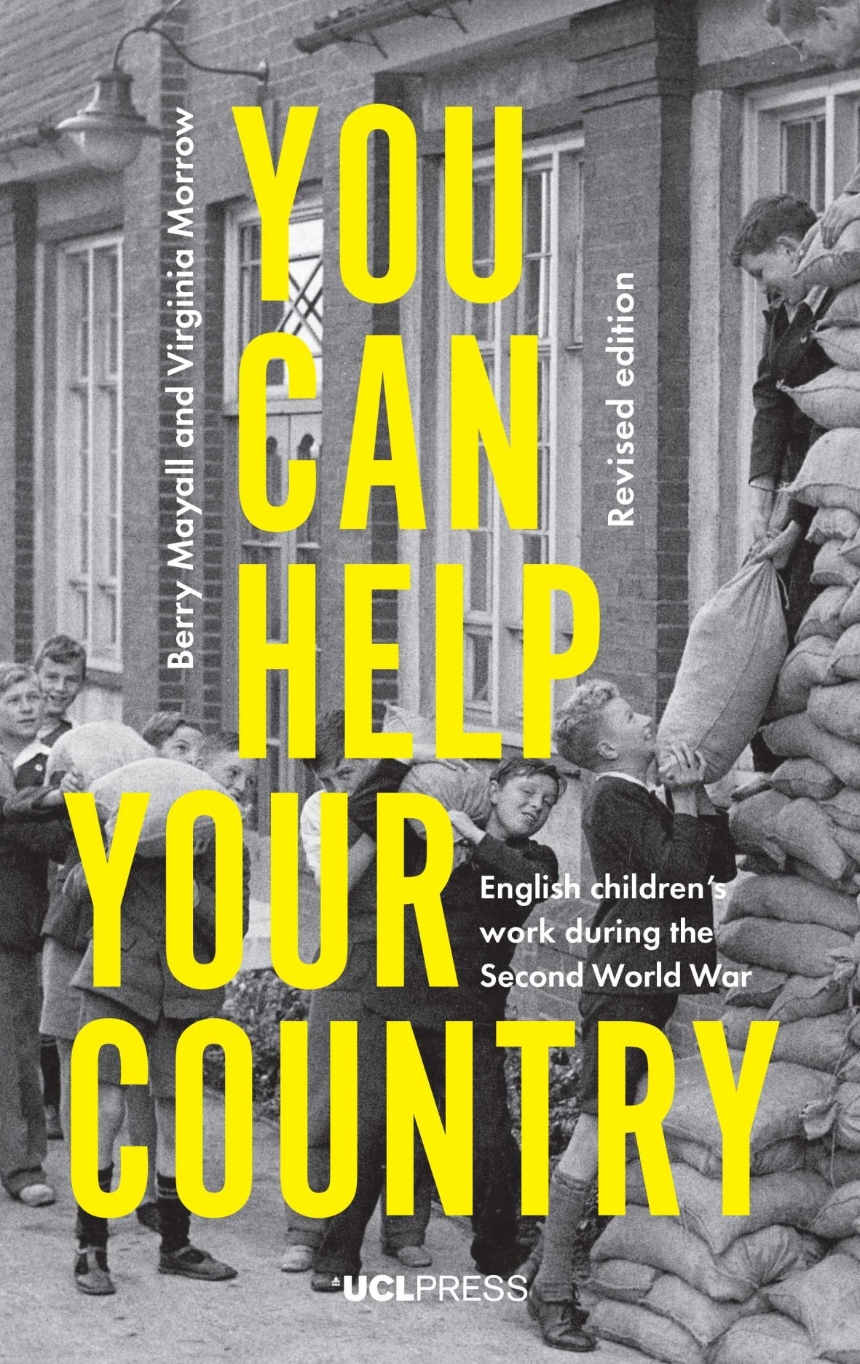You Can Help Your Country
English Children’s Work During the Second World War
Second Edition, Revised
9781787356788
9781787356849
Distributed for UCL Press
You Can Help Your Country
English Children’s Work During the Second World War
Second Edition, Revised
As men and women throughout England were called up for war work during World War II, the country needed to generate as much food and wealth as possible to support them. Children quickly came to be seen as a vital resource. Many children worked the land, planting and harvesting crops, raising money for the war effort, and carrying out a range of other tasks. That war work followed on debates throughout the preceding decades about the character and proper activities of childhood, debates that saw commentators in education and workers' organizations arguing about whether children should stay in school and learn or should combine their education with war-related work. The work of children during the war raised a question that still has relevance today: Should children be conceptualized as citizens of the future or as participating citizens now? That debate has led to even larger questions about the social construction of childhood. As children have increasingly withdrawn from paid and unpaid work, their contribution today can best be understood through their work at school, though that work is often disguised or devalued as mere socialization. The interwar years and the war years in England were a key time for re-thinking childhood, and the issues that were raised then still have relevance to the role of children in society today.
276 pages | 14 halftones | 6.14 x 9.21 | © 2020
Free digital open access editions are available to download from UCL Press.
Education: Higher Education
History: British and Irish History
Sociology: Social History
Table of Contents
Preface to the revised edition 1. Starting points 2. Children in social thought between the wars 3. Earners or learners? Work and school 1900–1939 4. Children in wartime 5. Younger children’s work: Doing their bit 6. Bringing in the harvest 7. Older children’s work: Serving their country 8. Children in organisations: Working for freedom 9. Closing points Appendix : School histories References Index

